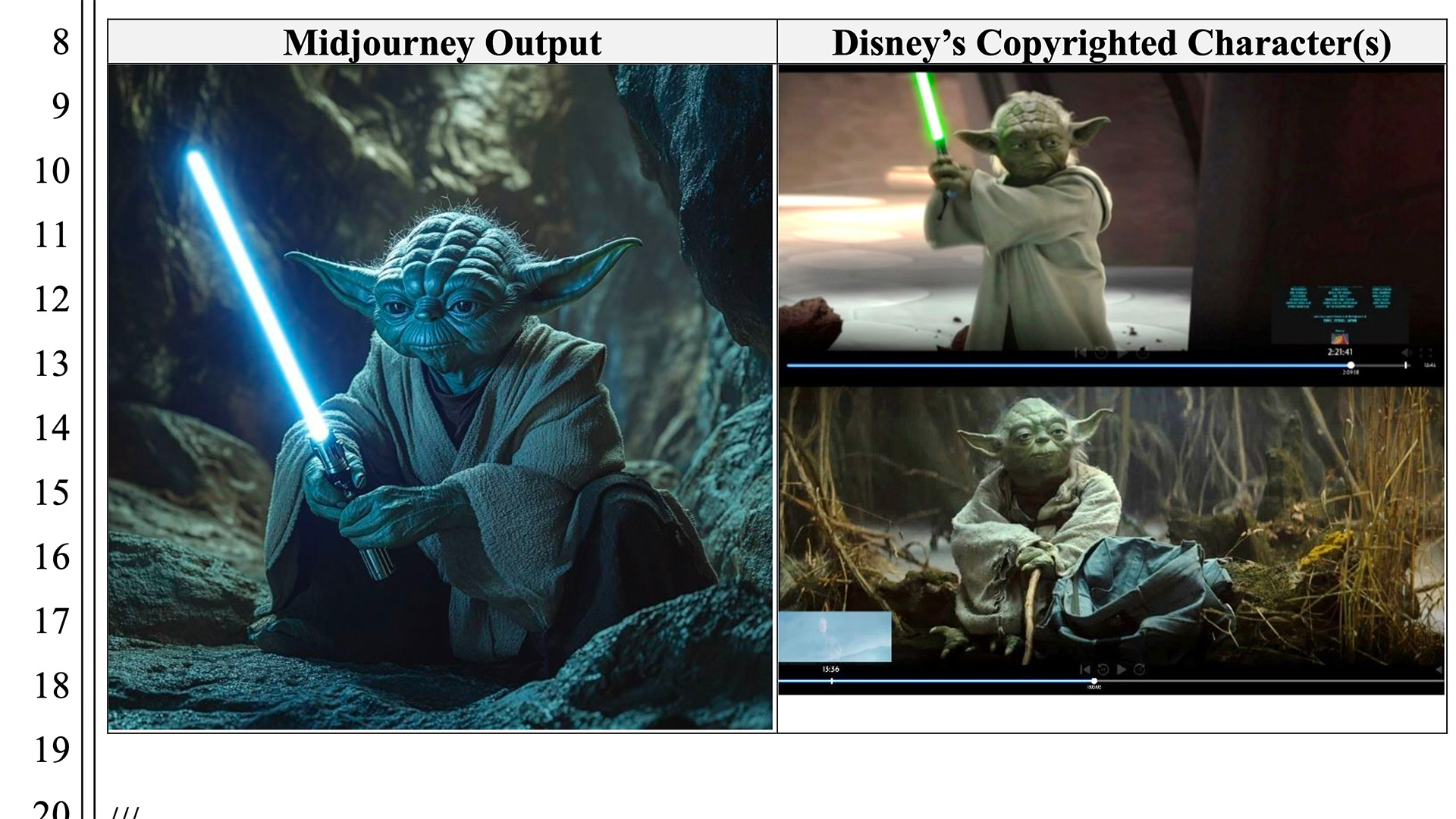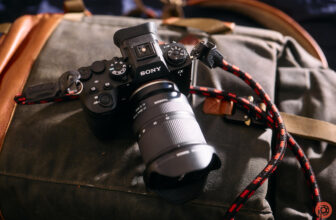
Check out our latest products

Hollywood’s biggest players have finally drawn their legal sword against generative-AI, staking out a landmark battle that could redefine how every frame of film is trained, licensed and monetized in the age of machine creativity: Disney and NBCUniversal Sue Midjourney.
This week, Disney and NBCUniversal filed a sweeping federal complaint in Los Angeles against Midjourney, the leading text-to-image platform (read the PDF document in full here). The suit alleges a two-step infringement scheme: first, scraping thousands of frames from studio films without permission; second, letting subscribers conjure near-photoreal images of Darth Vader, Elsa, Shrek, the Minions and other marquee characters. The studios call the service “a virtual vending machine” for bootleg IP and say the case is “not a close call” under U.S. copyright law.
First thing I thought when I heard about this: What took them so long? Why didn’t this happen much sooner? It’s the first time major Hollywood companies have sued over this matter.
“A bottomless pit of plagiarism“
Disney and Universal peg Midjourney’s 2024 subscription revenue at roughly $300 million, arguing that demand for branded, unlicensed imagery is the main growth engine. Exhibits show prompts such as “Darth Vader on a Paris runway,” returning studio-quality renders, and transforming infringement into a monthly SaaS product.

How Midjourney makes its money
Four paid tiers, priced between $10 and $120 per month, grant users escalating amounts of GPU time. Even the entry-level “Basic” plan can churn out hundreds of images; higher tiers offer effectively unlimited generations in relaxed mode. With more than 20 million registered users, the studios contend, each infringing output compounds their commercial harm.

What Disney and Universal want from suing Midjourney
The plaintiffs seek statutory damages up to $150,000 per infringed work, plus a preliminary and permanent injunction that would block Midjourney from distributing any image or its forthcoming video output depicting their IP unless robust filters are in place. They also demand complete transparency about Midjourney’s training corpus, a constructive trust over past profits, and attorney fees.

Studio leadership sounds off
Disney’s chief legal officer says the company is “bullish on AI,” but insists that theft remains theft, regardless of the tool. NBCUniversal’s top lawyer calls creativity “the cornerstone of our business,” vowing to defend the artists who make it possible. The Motion Picture Association warns that strong copyright protection is the backbone of an industry that contributes more than $260 billion to the U.S. economy.
Hollywood’s long courtship with AI
Until this lawsuit, Tinseltown largely treated AI as a partner, not an adversary. Warner Bros. adopted Cinelytic’s forecasting engine in 2020; Disney’s in-house FRAN network automated age-regression VFX by 2022; Netflix has long used computer vision to customize thumbnails; Lionsgate’s 2024 deal with Runway trained a text-to-video model on the John Wick and Hunger Games libraries; Meta has quietly tested its Movie Gen system with Blumhouse; and OpenAI’s Sora team has pitched direct integrations to studio chiefs. The Midjourney complaint marks a pivot from handshake to lawsuit – the moment the velvet glove met an iron fist.
Fair-use cross-currents
Midjourney is expected to invoke transformative fair use, emphasizing user prompts and stylistic remixing. Yet courts have historically been skeptical when derivative works reproduce unmistakable likenesses – think Spider-Man soaring over Manhattan or a photoreal Minion in Times Square. The studios’ side-by-side comparisons leave little doubt about visual overlap.
Why this matters for filmmakers and crews
Generative image tools already power storyboards, lookbooks, and virtual production plates. A decisive win for the studios could force AI vendors to license film frames like VFX houses license stock elements, raising costs but clarifying risk. A Midjourney victory might flood pre-viz workflows with unlicensed art, undercutting revenue that finances everything from camera tests to crew wages.

A bigger copyright fight
The case joins a widening legal front that also includes authors, visual artists, record labels, and news publishers. Hollywood’s combined firepower and the specificity of the visual evidence, however, make this filing the most consequential AI copyright action to date. Other studios – Sony, Warner Bros., Netflix, Amazon – are expected to watch closely or even intervene.
The road ahead
Without an early settlement, discovery could compel Midjourney to reveal its full training set, setting a transparency precedent. In the meantime, production teams should audit AI-generated art, demand warranties on data provenance, and budget for potential new licensing fees. Future AI tools, from automatic storyboard generators to style-matching color graders, may well arrive with rights management built in.
We couldn’t be happier that this is finally happening
At CineD, while we see it as our duty to report on any innovation in the video production space (some of which includes what’s happening with Artificial Intelligence), we are fundamentally against copyright theft. Innovation that erodes the legal bedrock funding filmmaking ultimately undercuts the craft itself. Sustainable AI must begin with consent and compensation; otherwise, the much-touted future of creativity risks cannibalizing the very artists and technicians it promises to empower.
This courtroom clash will define the rules for every storyboard generator and virtual-production pipeline to come – watch this space for the next chapter in Hollywood’s AI saga. What’s your take? Let us know in the comments below.

![[2025 Upgraded] Retractable Car Charger, SUPERONE 69W Car Phone Charger with Cables Fast Charging, Gifts for Men Women Car Accessories for iPhone 16 15 14 13 12, Samsung, Black](https://i1.wp.com/m.media-amazon.com/images/I/61SaegZpsSL._AC_SL1500_.jpg?w=300&resize=300,300&ssl=1)



![[True Military-Grade] Car Phone Holder【2024 Stronger Suction & Clip】 Universal Cell Phone Holder for Car Mount for Dashboard Windshield Air Vent Long Arm Cell Phone Car Mount Thick Case,Black](https://i2.wp.com/m.media-amazon.com/images/I/715PBCuJezL._AC_SL1500_.jpg?w=300&resize=300,300&ssl=1)
![[エレコム] スマホショルダー ショルダーストラップ 肩掛け ストラップホールシート付属 丸紐 8mm P-STSDH2R08](https://i3.wp.com/m.media-amazon.com/images/I/51BMFf06pxL._AC_SL1500_.jpg?w=300&resize=300,300&ssl=1)







